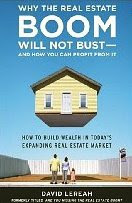The Harvard Kennedy School of Government offers an interesting insight about poverty in the US. Excerpts of an interview with author Kathrin Edin on the results of 1996 welfare reform are here: "There are big winners and big losers. At about the same time we reformed the welfare system, we made work pay better than welfare by implementing the earned income tax credit (EITC). This credit ensures that if you are a low wage worker, especially a single mom with no other earner in the household, the government pays you at tax time; you don’t pay the government. Families are getting thousands of dollars that supplement their income when they file their taxes each spring.
The problem with this solution is that it’s based on the assumption that everyone can work full time, full year. Because of what’s happening in the economy, lots of people can’t sustain full time, full year work. Then there are sick kids and disabled relatives to care for, very low human capital, and other reasons people can’t maintain a full time participation in the labor market. So there are also big losers. Whereas full time, full year workers who used to be on welfare are now probably better off than they’ve been in a long time – largely because of the tax credit – those who aren’t able to sustain full time work are possibly worse off than they’ve ever been before. At any given time roughly a third of people who used to be on the welfare rolls are without any visible means of support. We know very little about how those people or their children are doing."




















